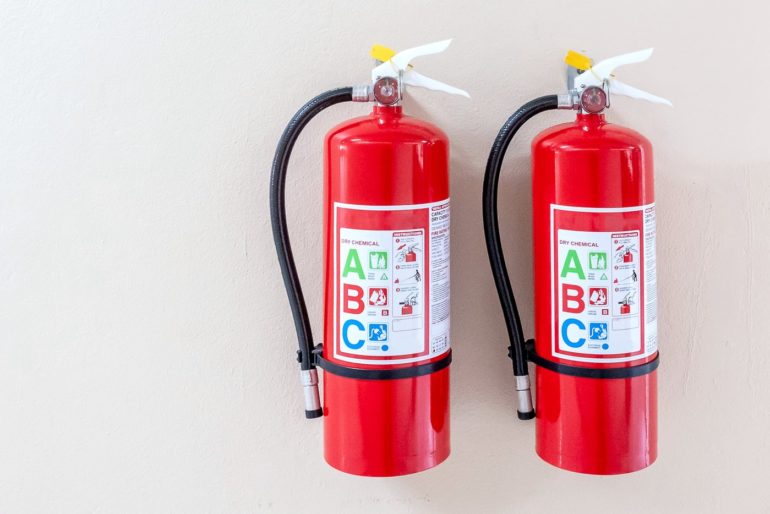What foods are most likely to cause food poisoning?
While the American food supply is among the safest in the world, the government estimates that there are about 48 million cases of food poisoning — aka foodborne illness — each year.
That’s the equivalent of sickening 1 in 6 Americans each year. And each year these illnesses result in an estimated 128,000 hospitalizations and 3,000 deaths.
While the very young, the elderly, and people with weakened immune systems are at greatest risk of serious consequences from most foodborne illnesses, some of the organisms shown below pose grave threats to all people.
ALSO SEE: How can you figure out what gave you food poisoning?
Top food poisoning causes & symptoms chart
The chart below includes sixteen diferent foodborne disease-causing organisms that frequently cause illness in the United States.
As the chart below shows, the threats are numerous and varied, with symptoms ranging from relatively mild discomfort to very serious, life-threatening illness.
| Common name of illness | Onset after ingestion | Signs & symptoms | Duration |
Food sources |
|---|---|---|---|---|
| B. cereus food poisoning | 10-16 hrs | Abdominal cramps, watery diarrhea, nausea | 24-48 hours | Meats, stews, gravies, vanilla sauce |
| Campylobacteriosis | 2-5 days | Diarrhea, cramps, fever, and vomiting; diarrhea may be bloody | 2-10 days | Raw and undercooked poultry, unpasteurized milk,contaminated water |
| Botulism | 12-72 hours | Vomiting, diarrhea, blurred vision, double vision, difficulty in swallowing, muscle weakness. Can result in respiratory failure and death | Variable | Improperly canned foods, especially home-canned vegetables, fermented fish, baked potatoes in aluminum foil |
| Perfringens food poisoning |
8–16 hours | Intense abdominal cramps, watery diarrhea | Usually 24 hours |
Meats, poultry, gravy, dried or precooked foods, time and/or temperature-abused foods |
| Intestinal cryptosporidiosis |
2-10 days | Diarrhea (usually watery), stomach cramps, upset stomach, slight fever | May be remitting and relapsing over weeks to months | Uncooked food or food contaminated by an ill food handler after cooking, contaminated drinking water |
| Cyclosporiasis | 1-14 days, usually at least 1 week | Diarrhea (usually watery), loss of appetite, substantial loss of weight, stomach cramps, nausea, vomiting, fatigue | May be remitting and relapsing over weeks to months | Various types of fresh produce (imported berries, lettuce, basil) |
| E. coli infection (common cause of “travelers’ diarrhea”) |
1-3 days | Watery diarrhea, abdominal cramps, some vomiting | 3-7 or more days | Water or food contaminated with human feces |
| Hemorrhagic colitis or E. coli O157:H7 infection | 1-8 days | Severe (often bloody) diarrhea, abdominal pain and vomiting. Usually, little or no fever is present. More common in children 4 years or younger. Can lead to kidney failure. | 5-10 days | Undercooked beef (especially hamburger), unpasteurized milk and juice, raw fruits and vegetables (e.g. sprouts), and contaminated water |
| Hepatitis | 28 days average (15-50 days) | Diarrhea, dark urine, jaundice, and flu-like symptoms, i.e., fever, headache, nausea, and abdominal pain | Variable, 2 weeks-3 months | Raw produce, contaminated drinking water, uncooked foods and cooked foods that are not reheated after contact with an infected food handler; shellfish from contaminated waters |
| Listeriosis | 9-48 hrs for gastro-intestinal symptoms, 2-6 weeks for invasive disease | Fever, muscle aches, and nausea or diarrhea. Pregnant women may have mild flu-like illness, and infection can lead to premature delivery or stillbirth. The elderly or immunocompromised patients may develop bacteremia or meningitis. | Variable | Unpasteurized milk, soft cheeses made with unpasteurized milk, ready-to-eat deli meats |
| Noroviruses – Variously called viral gastroenteritis, winter diarrhea, acute non- bacterial gastroenteritis, food poisoning, and food infection | 12-48 hrs | Nausea, vomiting, abdominal cramping, diarrhea, fever, headache. Diarrhea is more prevalent in adults, vomiting more common in children. | 12-60 hrs | Raw produce, contaminated drinking water, uncooked foods and cooked foods that are not reheated after contact with an infected food handler; shellfish from contaminated waters |
| Salmonellosis (Salmonella) | 6-48 hours | Diarrhea, fever, abdominal cramps, vomiting | 4-7 days | Eggs, poultry, meat, unpateurized milk or juice, cheese, contaminated raw fruits and vegetables |
| Shigellosis or Bacillary dysentery | 4-7 days | Abdominal cramps, fever, and diarrhea. Stools may contain blood and mucus. | 24-48 hrs | Raw produce, contaminated drinking water, uncooked foods and cooked foods that are not reheated after contact with an infected food handler |
| Staphylococcal food poisoning | 1-6 hours | Sudden onset of severe nausea and vomiting. Abdominal cramps. Diarrhea and fever may be present. | 24-48 hours | Unrefrigerated or improperly refrigerated meats, potato and egg salads, cream pastries |
| V. parahaemolyticus infection | 4-96 hours | Watery (occasionally bloody) diarrhea, abdominal cramps, nausea, vomiting, fever | 2-5 days | Undercooked or raw seafood, such as shellfish |
| V. vulnificus infection | 1-7 days | Vomiting, diarrhea, abdominal pain, bloodborne infection. Fever, bleeding within the skin, ulcers requiring surgical removal. Can be fatal to persons with liver disease or weakened immune systems. | 2-8 days | Undercooked or raw seafood, such as shellfish (especially oysters) |
Information provided by the US Food and Drug Administration (updated 2014 ) and the US Department of Health & Human Services.
ALSO SEE: What is freezer burn?







